Social media management is an essential part of any marketer’s daily life!
There are plenty of social media management tools that take on major tasks out of a marketer’s daily hassle and make it easy for them to focus on more important things.
Short Summary
- Social media management is essential for marketers, and while Sprout Social is popular, it’s expensive at $199/month, making it less ideal for startups and small businesses.
- Sprout Social’s drawbacks include high pricing, a rigid annual contract policy with auto-renewals, and complaints about poor customer support.
- Key features to look for in alternatives include affordability, scalability, intuitive user experience, publishing/scheduling, unified inbox, analytics, social listening, and team collaboration tools.
- Identifying business needs, assessing key features, and giving usability top priority are all part of selecting the best competitor.
- Because of its feature set, extensive network support, and affordability, Social Champ is the greatest substitute.
Sprout Social is one of such tools, but it certainly is not the only one!
If you have been using Sprout Social for a while and wonder if there are other options as good as this tool, you’ve come to the right place.
In this blog, we will discuss 12 Sprout Social competitors that provide a good stack of features without charging you $199/month.
So let’s get started!
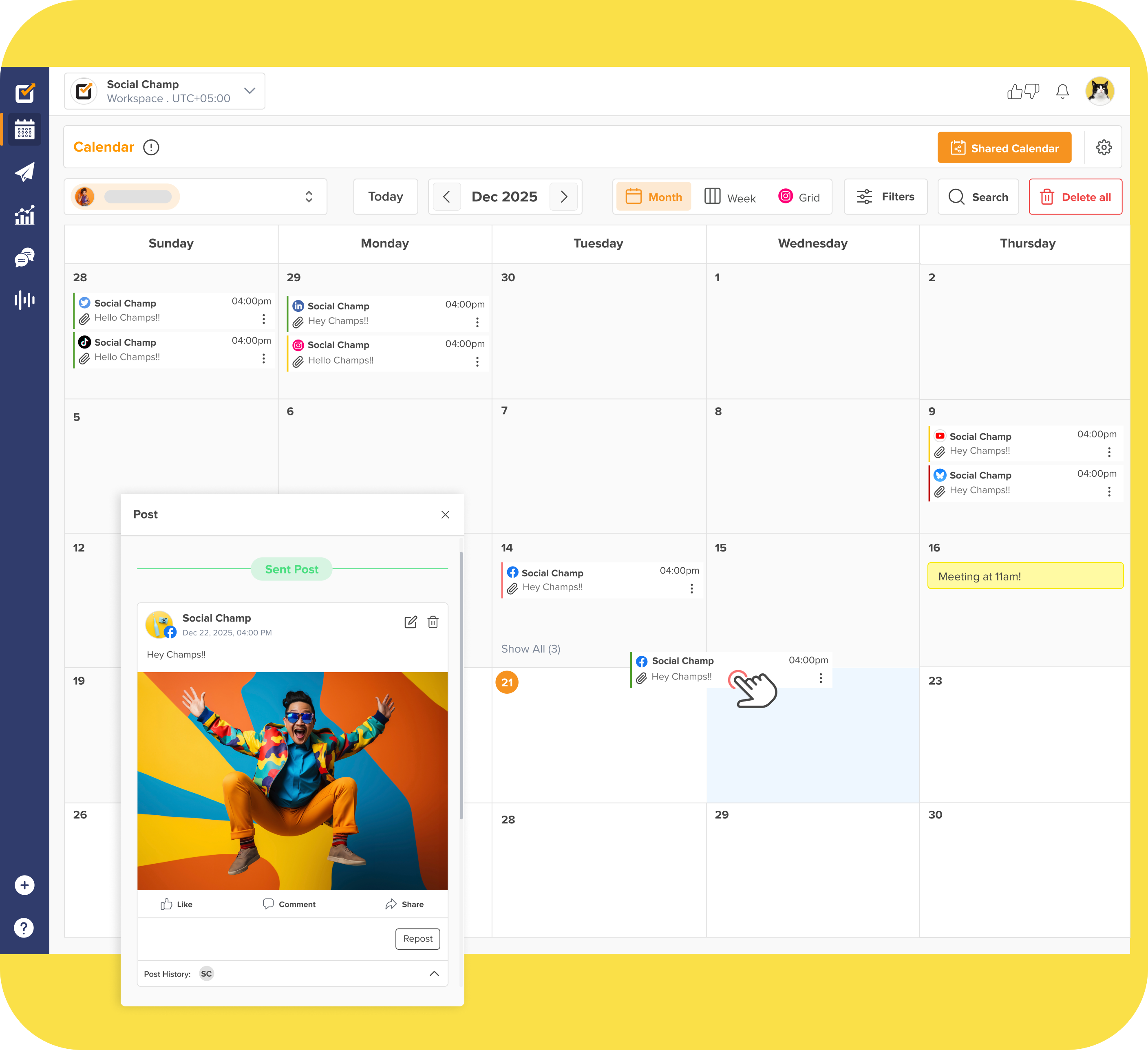
Stop Bleeding $199/Month!
Why pay enterprise-level pricing for features you barely use? Social Champ gives you automation, analytics, and 11+ platforms for a fraction of the cost.
Why Look Beyond Sprout Social for Your Social Media Management?
One reason people stick with Sprout Social is that it offers a variety of features, which businesses often prefer to have in one tool.
However, there are a lot more reasons why it might not be the best fit for your business, including:
-
High Cost
It’s safe to say that Sprout Social is not designed to accommodate small businesses or startups. And this is the biggest drawback of this tool. Paying $199/month for one user can not be suitable for any business that’s just starting out.
In those initial stages of establishing a business, every dollar counts. In such cases, you’d need a tool that gives you all the basic social media management features at reasonable rates.
There are plenty of social media management tools that offer a similar set of features and cost below $20. For small businesses, those options might be the better choice.
-
Contract Policy
One of the biggest drawbacks of Sprout Social is that it does not allow monthly billings. If you’re purchasing the tool, you’d have to sign up for an annual subscription, which can come at a hefty cost.
This means, even the most basic plan can cost you around $2,388. This can be hard on even SMBs because paying a sum of that much money is not feasible for most businesses.
-
Customer Support
Sprout Social primarily utilizes bots to answer customer queries, which can be a huge help if you want instant responses.
However, you might experience more complex cases when the need to talk to a representative becomes critical. This is where the problem arises.
According to some users, it is hard to get a hold of a representative; some users even say that they have booked countless meetings with the customer support to convert after the trial period, but have had no luck in connecting with an agent.
This can be alarming for some businesses because, in case of a problem, their customer support might not even respond.
Featured Article: Top 10 Planoly Competitors & Alternatives in 2025
Key Features to Look for in Sprout Social Competitors
When searching for Sprout Social competitors, you can consider examining the key features that often drive switching decisions.
Here are some of the things you should look for:
-
Cost and Scalability
It’s best to seek out platforms that provide a range of plans, including reasonably priced choices for individuals, startups, and expanding teams.In comparison to Sprout Social’s per-user seat, many of its rivals, such as Social Champ, Buffer, and Later, offer tiered pricing based on the quantity of social profiles, users, or post limits.
-
User Experience
The complexity of Sprout Social is a major drawback.
For new users or smaller teams that do not require a full enterprise suite, a tool with an easy-to-use interface is more suited.
Other alternatives like Social Champ, Buffer, and Agorapulse are frequently commended for their intuitive designs.
-
Core Functionality
Any social media tools like sprout social must have core features to be considered a good investment. Some basic features to look for include:
- Publishing and Scheduling: It is one of the main features for social media management. It includes features like bulk scheduling, post customization for various networks, and an evergreen content library.
- Unified Social Inbox: It saves a ton of time to have a single inbox that collects all of the mentions, messages, and comments from various platforms.
- Analytics and Reporting: It helps you track your performance online and creates shareable reports to enhance strategies based on insights.
- Social Listening: It lets you keep an eye on industry trends, keywords, and brand mentions.
-
Team Collaboration
Features like internal notes, user permissions, and multi-level approval workflows are crucial for agencies and teams.
That’s why it is best to seek out tools that facilitate teamwork and provide direct client feedback within the platform.
Featured Article: Top 12 Hootsuite Competitors in 2025
Top 12 Best Sprout Social Competitors for 2025
If you’re not quite sure which tool offers what, we have compiled this list of the best Sprout Social competitors for you to rely on.
Take your time to compare their key features and strengths with each other before choosing one.
-
Social Champ

Social Champ’s Dashboard If you’re looking for a tool similar to Sprout Social, without the high costs, Social Champ is your best bet.
This platform covers everything you need, with plans starting at just $4/month. It comes with features like scheduling, analytics, social inbox, social listening, and competitor analysis.
What makes this tool stand out is its easy-to-use interface. You do not need to have technical knowledge to operate Social Champ. That being said, you can always schedule a one-on-one demo to navigate the tool.
Additionally, Social Champ also lets you connect up to 11 platforms, including Facebook, Instagram, X, Threads, TikTok, Pinterest, LinkedIn, Bluesky, Mastodon, YouTube, Bluesky, and Google Business Profile, among others.
Key Features
- Posts can be queued across all social media platforms and scheduled in bulk.
- Built-in social listening tools to keep an eye on live discussions and track brand mentions.
- RSS integration to keep your profile’s feed active and automatically pull and publish content.
- Easy-to-use drag-and-drop social content calendar to plan, schedule, and visualize posts.
- An Analytics dashboard to track growth, engagement, and performance metrics after posting.
- A social inbox to view and manage discussions, comments, and messages on all platforms

11+ Social Platforms. One Dashboard. Zero Excuses.
Your audience isn’t stuck on one app, so why are you? Social Champ centralizes all platforms, saving you time and winning back reach.
-
Hootsuite

Hootsuite’s Homepage Many enterprise brands use Hootsuite, a platform with a wide range of features like campaign tracking, advanced analytics, and comprehensive reporting.
In addition to integrating with CRMs, email marketing software, and ad managers, it supports over eight social media platforms.
Hootsuite is becoming a contender for enterprise users because it provides granular control over roles and permissions, which is useful if you have a large team or multiple departments.
Despite being one of the pioneers in the field, small teams typically cannot afford its high cost. However, it provides size and power for those who need it.
Key Features
- Ability to manage all audience interactions with a single social media inbox for mentions, messages, and comments.
- Analytics to track the effectiveness of campaigns and reporting dashboards.
- Simple content approval process with advanced workflows made for groups and companies.
- Native integrations to connect with programs like Google Drive, Slack, Salesforce, and many more
-
Buffer

Buffer’s Dashboard Because of its simplicity of use and minimalist design, Buffer has been around for more than ten years and is still well-liked by bloggers, creators, and startups.
While other platforms offer a plethora of features, Buffer focuses on simplicity.
Without overburdening users with cluttered dashboards, it is intended to help them with content scheduling, performance evaluation, and audience engagement.
The browser extension makes it very easy to add content on the fly, and the tool is compatible with all major platforms.
Even though it doesn’t have social listening or competitor tracking, its portability makes it a pleasure to use, especially for teams or individuals who don’t need sophisticated features.
Key Features
- Content calendar to make a plan and easily schedule your content for weeks or months
- Analytics to keep an eye on each post’s performance metrics to determine what works
- Unified inbox to answer direct messages and comments
- Integrated Canva integration to create content that is in tune
- Sophisticated team collaboration tools, which are available on more expensive plans to collaborate with your team
-
Vista Social

Vista Social’s Homepage Vista Social is a lesser-known tool compared to the others mentioned in this list, but it truly stands out for its functionality and ease of use.
It is a comprehensive solution for multi-channel campaigns because it supports a wide range of platforms, including Facebook, Instagram, TikTok, LinkedIn, Bluesky, and even specialized networks.
Key Features
- Publishing on multiple platforms and supporting scheduling for popular and specialized social networks
- Using social listening to track industry trends, keywords, and mentions
- A single inbox to manage reviews, messages, and comments
- AI-driven tools for creating content
- Monitoring performance with reporting and analytics
-
Later

Later’s Dashboard Later is a dependable social media scheduler for marketers, influencers, and brands who thrive on image-heavy platforms like Instagram, Pinterest, and TikTok.
Its focus on visual presentation guarantees that users can see exactly how their posts will look before they go live, and its easy-to-use drag-and-drop interface makes scheduling and planning simple.
Fashion retailers, lifestyle influencers, and businesses that rely on top-notch visual content to make their message come to life also favor this.
Key Features
- A drag-and-drop visual content calendar to help you schedule posts and campaigns
- A media library to store, arrange, and reuse photos and videos.
- A Link-in-Bio tool that creates a clickable or shoppable feed
- Post preview to see how the content will appear exactly when it is published
- Scheduling on multiple platforms, including Facebook, Pinterest, LinkedIn, Instagram, and TikTok
-
Agorapulse

Agorapulse’s Dashboard Agorapulse is a feature-rich social media management tool. Businesses that need to manage several brands or client accounts will find it especially helpful.
Agorapulse, which places a strong emphasis on customer interaction, offers comprehensive performance reports, an integrated inbox, and CRM-style tagging to manage audience relationships.
It is perfect for teamwork because of its clear user interface and approval processes.
Key Features
- A unified inbox allows you to manage all conversations in one location
- Effective competitor analysis tools to stay ahead of the competition
- Team collaboration to work well together on team responsibilities and tasks
- Publishing calendar to plan and arrange your content
- Integrated CRM to forge closer bonds with others
- Analytics to measure success with ROI reporting for social campaigns
-
Sendible

Sendible’s Dashboard Sendible is another social media management tool that is built with agencies in mind.
It offers white-labeling choices, client management features, and platform integrations.
Managing large amounts of content is made easy by its rich visual calendar and intelligent scheduling features.
Sendible’s agency focus is what really sets it apart. From managing numerous client accounts to producing branded reports, it has it all.
Key Features
- Scheduling and smart queues to efficiently schedule the automatic delivery of content.
- Follow up on leads within the platform itself and manage relationships with an integrated CRM.
- Blog platform integrations and Google Business Profile integrations to streamline your processes.
- Comprehensive reports and analytics in branded, customizable formats to deliver to clients in a polished manner.
-
ContentStudio

ContentStudio’s Homepage For agencies and content teams, ContentStudio is an excellent platform because it integrates social media management and content marketing features.
It offers blog publishing, social inbox functionality, comprehensive content discovery, and automated workflows.
ContentStudio is ideal for groups that manage blogs and social media from one place.
Key Features
- Native content discovery and curation engine to find and share trending topics.
- Ability to publish from one location on the blog and social media platforms.
- Integrated social inbox to manage all conversations in one place.
- Designated areas for teams and clients to efficiently manage projects.
-
SocialPilot

SocialPilot’s Dashboard Another competitor that strikes a balance between cost and state-of-the-art features is SocialPilot.
It is intended for agencies and small to medium-sized teams that manage several clients or brand pages.
For those seeking the most reliable social media management tool for enterprises, SocialPilot delivers a clear performance view without overwhelming data.
Its performance-based analytics dashboard, flexible scheduling options, and clean design make managing social accounts seamless.SocialPilot stands out due to its white-labeling capability, which makes it a great option for agencies that need to give clients branded reports.
It also offers a good view of the content calendar, approval workflows, and excellent client management features.
Key Features
-
- Editable team roles and permissions to limit roles and access
- Social inbox to manage mentions, comments, and messages all in one inbox
- RSS feed integration for bulk scheduling and auto-posting to save time
- Canva, Zapier, and additional integrations to enhance your creative workflow
- Team collaboration with well-structured client approval procedures
-
-
Zoho Social

Zoho Social’s Dashboard Zoho Social is a smart choice because of its distinctive native integration with programs like Zoho CRM and Zoho Desk.
It offers a perspective of potential customers by fusing social media activity with customer data.
Zoho Social offers good functionality, especially for SMBs and agencies, even though its own interface seems a little antiquated in comparison to more recent options.
Key Features
- Smart scheduling to release during periods of high engagement
- Real-time dashboard for monitoring keywords and mentions
- Comprehensive CRM integration to synchronize leads and contacts
- Integrated teamwork tools for procedures
- Analytics dashboards and reports that can be customized to track performance
-
Planable

Planable’s Homepage Planable is a social media platform that prioritizes collaboration and is ideal for teams that value efficiency in client approvals, visual overviews, and clarity.
It is especially helpful in content-rich workflows and agency settings where there is a high volume of feedback and iterations because of its clear, simple, and intuitive design.
Key Features
- Commenting and making suggestions in real time on post drafts
- Procedures for internal and external stakeholders’ approval
- Calendars with multiple views of content (grid, list, calendar, feed preview)
- Previews of live posts on Facebook, Instagram, LinkedIn, and other platforms
-
SocialBee

SocialBee’s Dashboard SocialBee is renowned for its evergreen recycling and content classification features, which make it easier to keep your social feeds active without constant manual scheduling.
Small teams and content marketers who want their posts to do more over time will find it particularly appealing.
Additionally, SocialBee offers sophisticated category scheduling, AI copy recommendations, and integrations with Canva and Zapier.
The platform’s functionality is excellent and can manage high posting volumes, even though the user interface needs some work.
Key Features
- Content recycling to keep your most successful posts active
- Fresh concepts instantly with AI-powered content recommendations
- Category-based scheduling to make it simple to plan and publish posts
- Ability to upload CSV files or import content in bulk
- Enhanced productivity with Zapier, Canva, and URL shortener integrations
How to Choose the Best Sprout Social Competitors for Your Business
Here’s a list of things you should consider before choosing the best Sprout Social competitor for your business.
-
Define Your Needs
If you are a Sprout Social user, chances are that you already have most of the features you want in a scheduling tool. You won’t be wooed by tools that offer the bare minimum.
To make sure that you’re on the right track, first define your needs. Analyze the issues you have with your current tool and then look for an alternative that resolves them.
If it is budget, then you need a tool that’s affordable; if it’s the platform’s complexity, then you need a tool with an intuitive interface.
Defining the needs filters out the tools that are not suited for you and makes the decision easier.
-
Evaluate Core Functionality
Switching from Sprout Social to a tool that doesn’t even have half of its features would be a demotion.
There are plenty of tools that offer a number of features at a fraction of the cost, so always check the core functionality before the contract.
You don’t have to be stuck with another feature that doesné fulfil your requirements.
-
Consider User Experience
User experience should be your top priority. You don’t want a tool that makes your life harder than it is.
Social media management tools are built to help you manage social media easily, so it shouldn’t be hard to use the tool.
Look for an easy-to-use and beginner-friendly Sprout Social competitor to save time.
Social Champ: The Perfect Competitor to Sprout Social
Social Champ is an ideal competitor to Sprout Social because it provides a similar, comprehensive feature set but at a much more accessible price point.
With its expensive, per-user model, Sprout Social targets large corporations, whereas Social Champ provides a range of more flexible plans for startups and expanding teams.
Additionally, enterprises can also use Social Champ by getting a custom quote for their requirements. The cost for this plan depends on the number of accounts, users, and features they wish to utilize.
Although it extends its platform to a larger range of social networks (more than 11), including Mastodon, it retains many of Sprout Social’s essential features, such as thorough analytics, team collaboration with approval workflows, and content scheduling.
This makes Social Champ the best Sprout Social competitor in this list and overall.

This Is the Last Tool Switch You’ll Ever Make!
Social Champ gives you power, scale, and affordability in one place. Ditch annual contracts and overpriced tools forever.
Conclusion
Finding Sprout Social competitors result in a more specialized, affordable, and user-friendly solution that precisely matches the demands of a business.
On this hunt, you can find a social media management platform that not only meets but exceeds your expectations.
A competitor like Social Champ can provide the ideal mix of features and value, regardless of your priorities: affordability, a simplified user interface, or a highly specialized feature set.
This targeted strategy guarantees that your investment enables your team to work more efficiently and accomplish its social media objectives without going over budget or sacrificing quality.

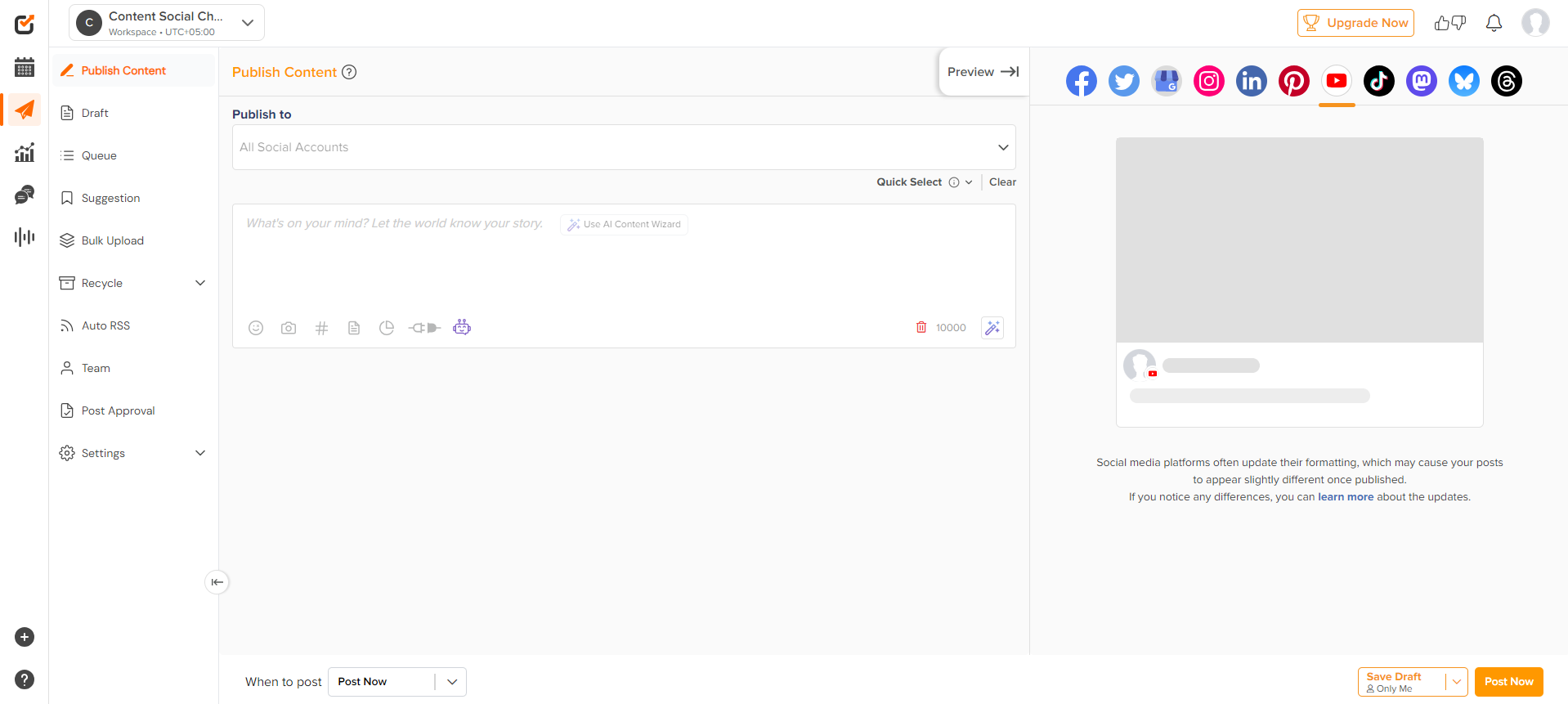
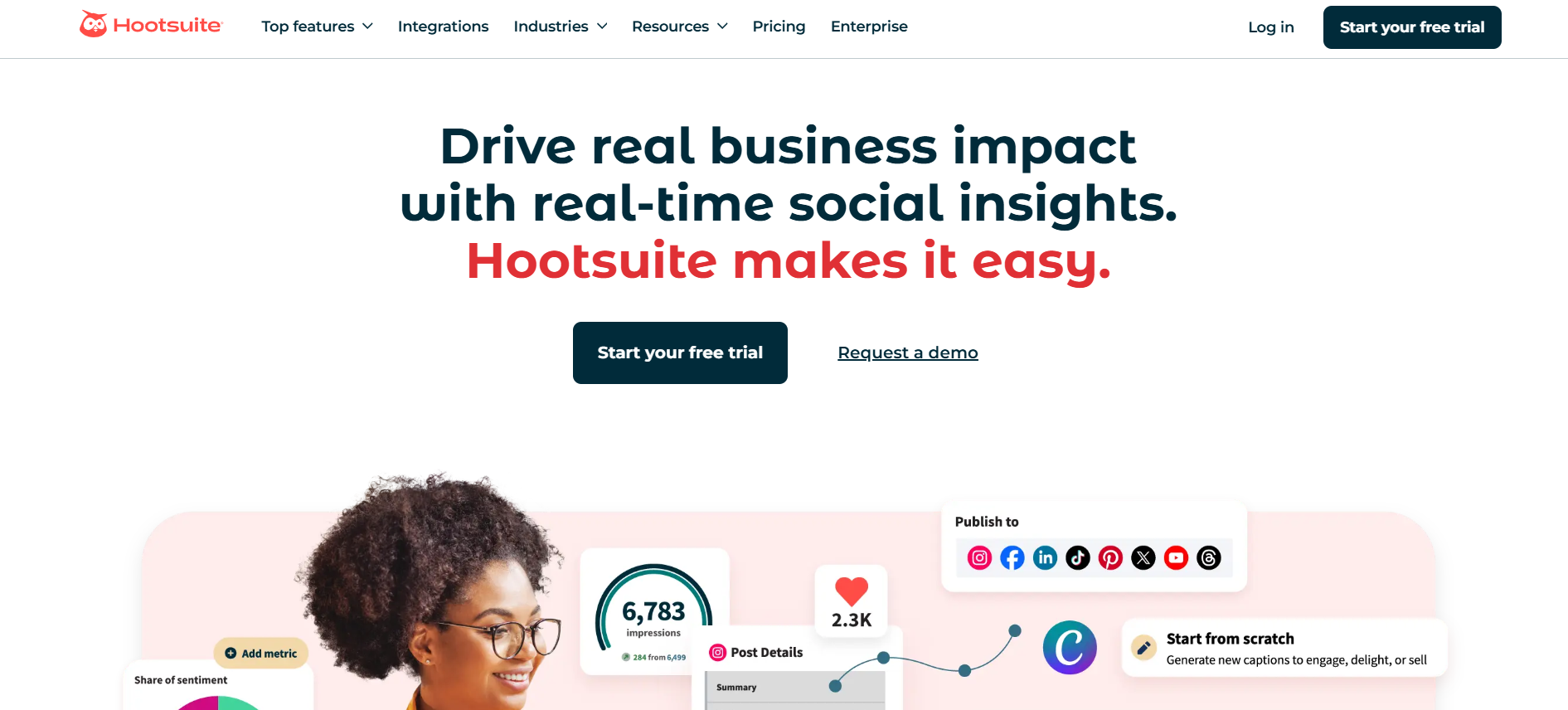
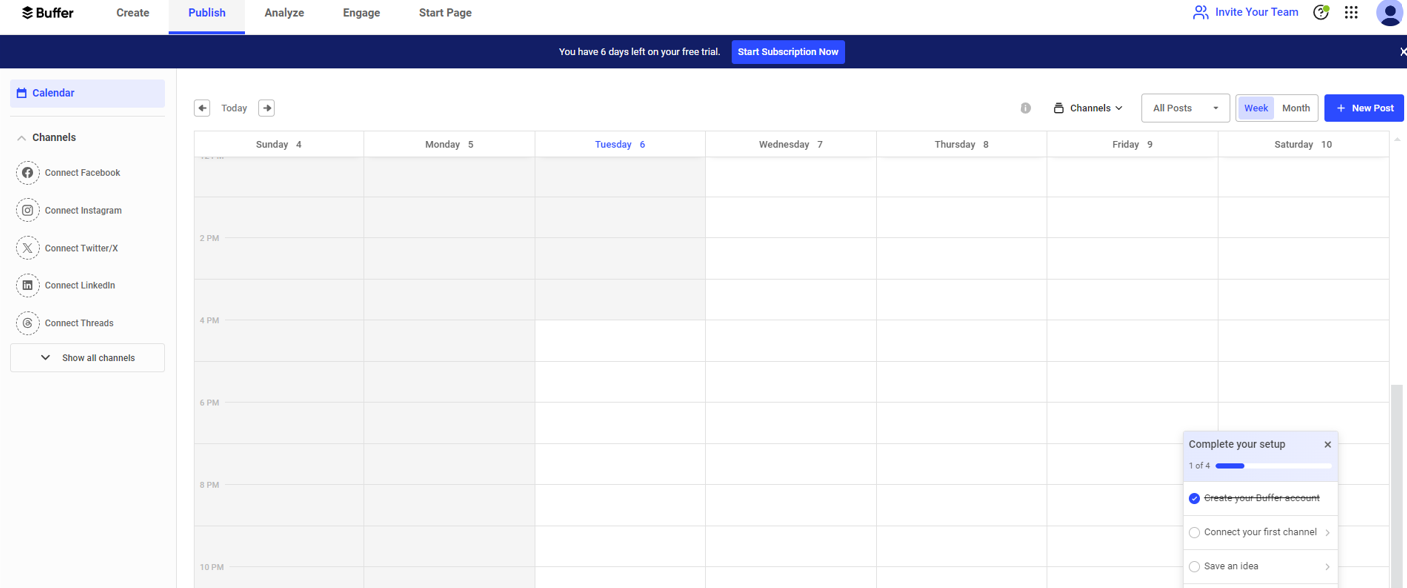

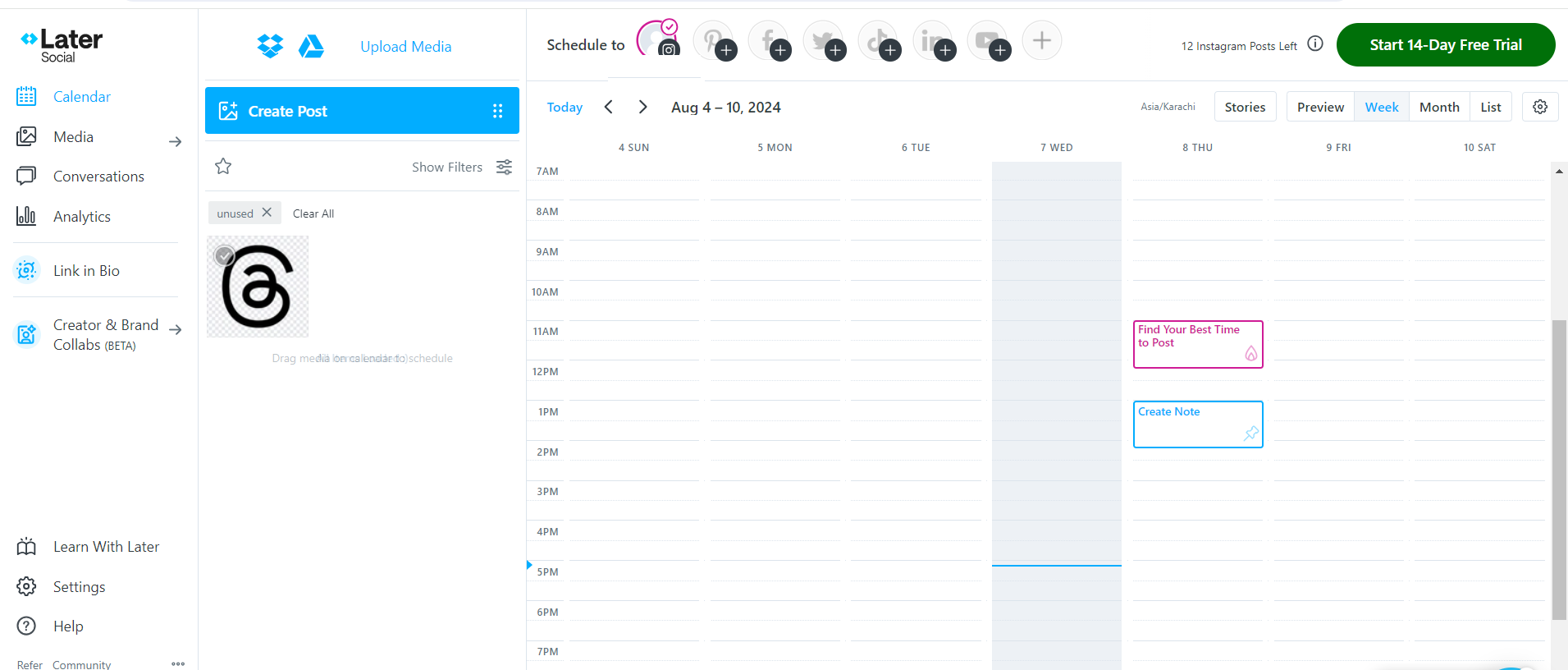
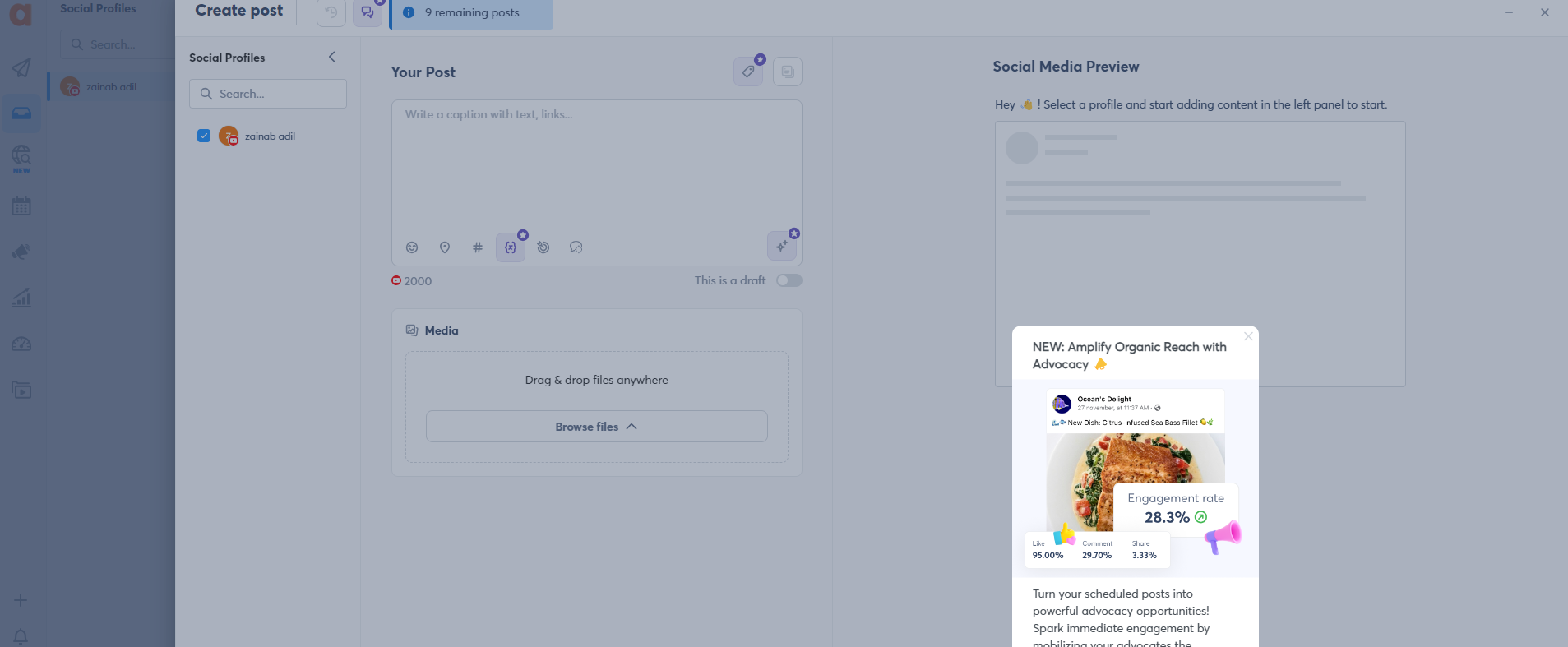
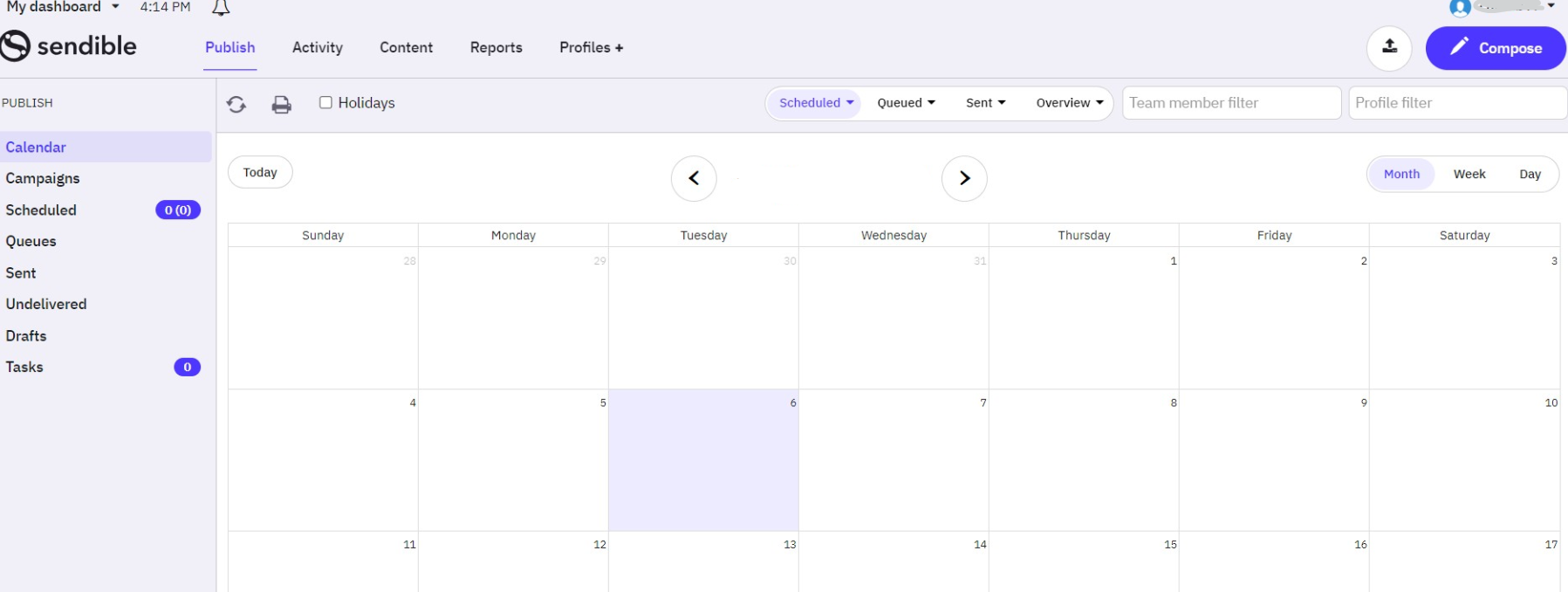
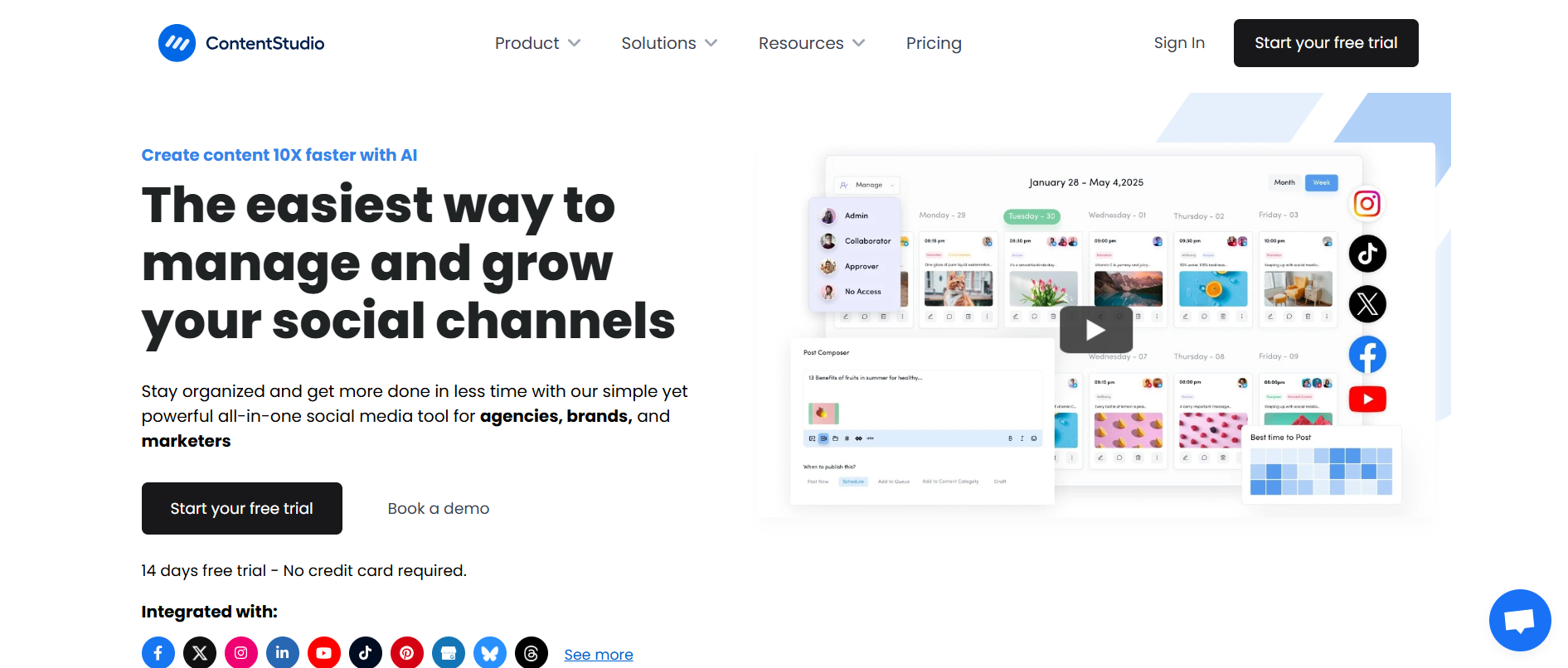
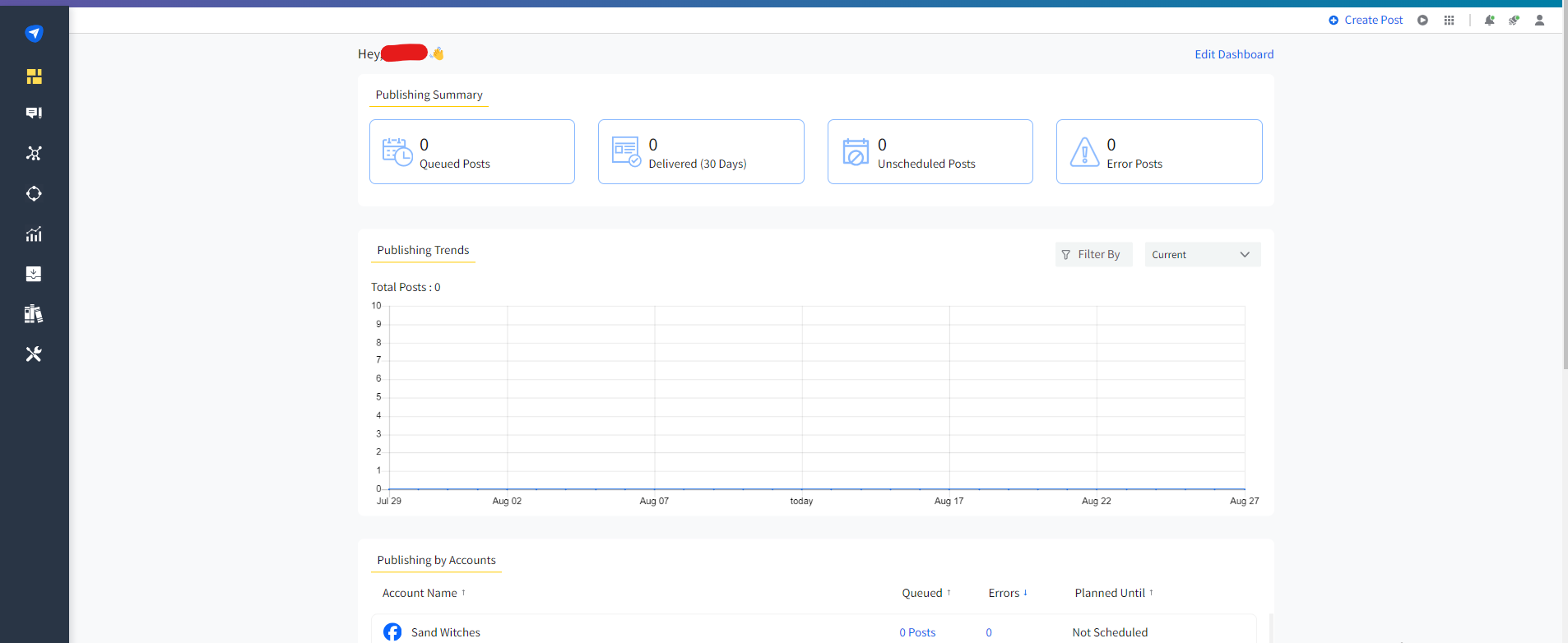
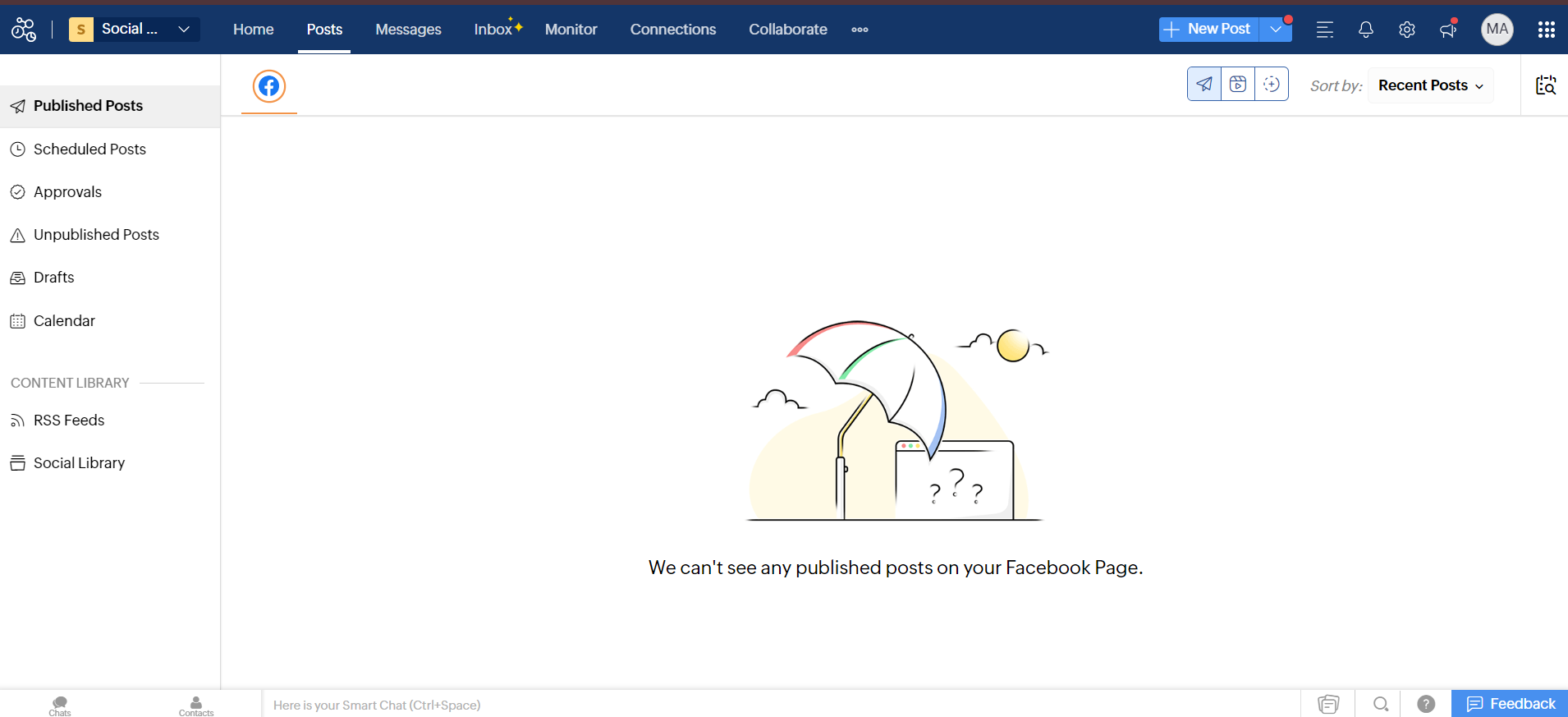
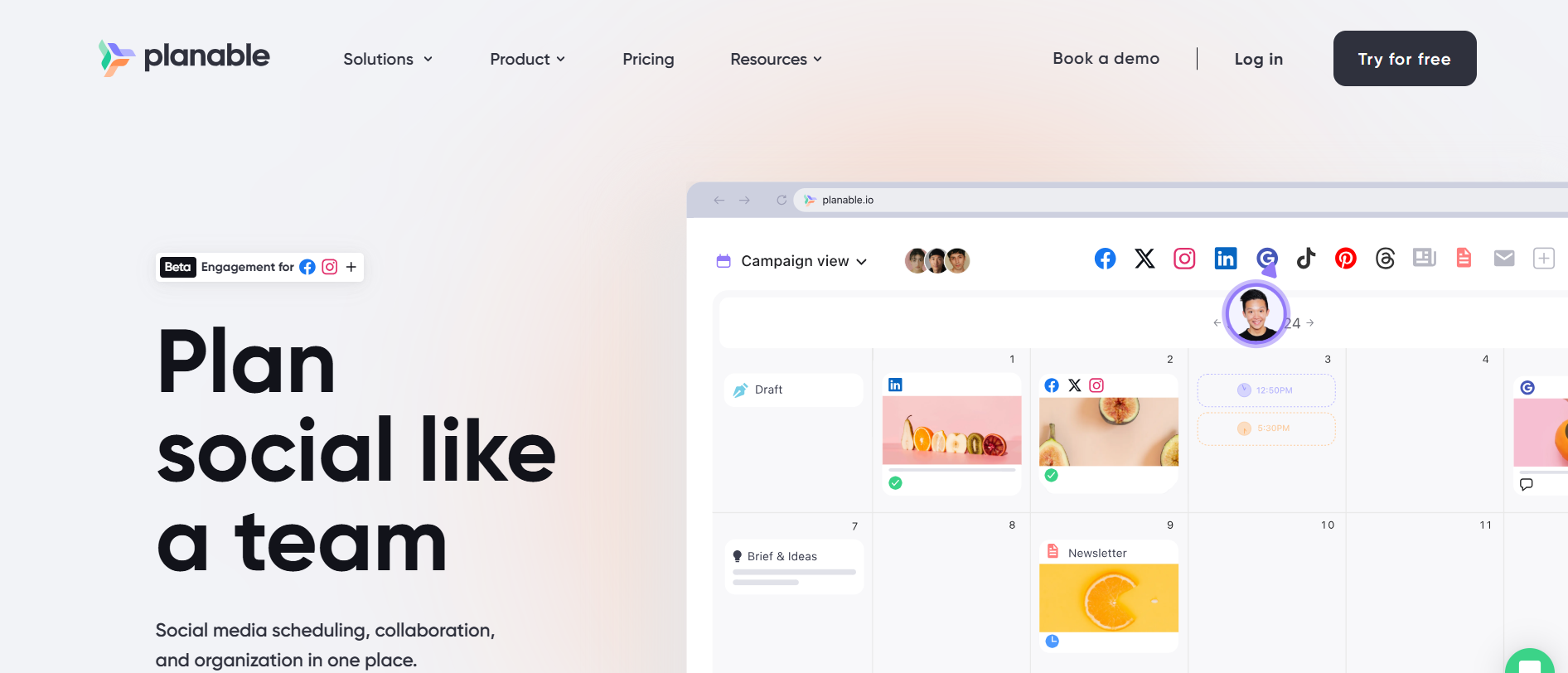
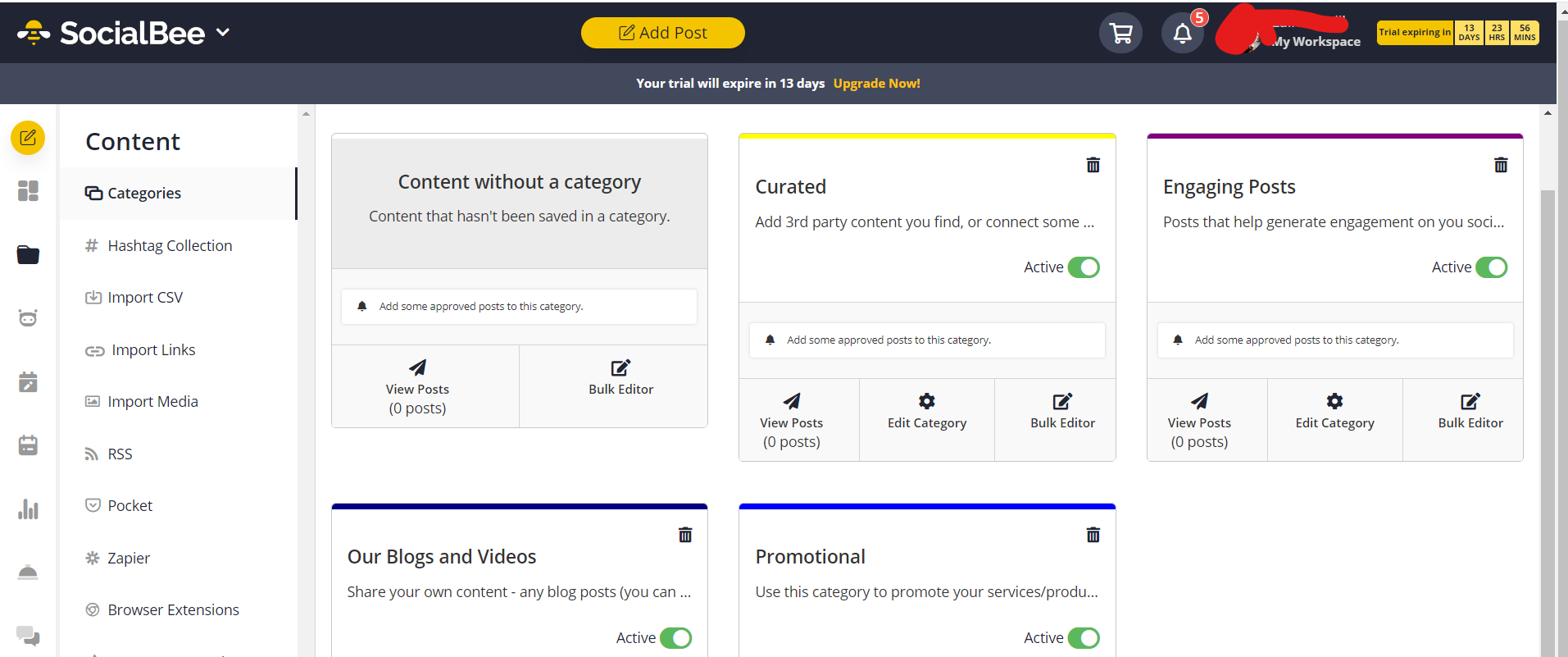



1 comment
Sawyer Martin
Thank you for sharing your insights. As a small business owner, it’s important for me to find a social media management tool that meets my needs while also being affordable and user-friendly.